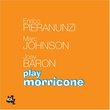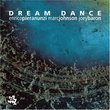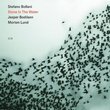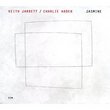| All Artists: Enrico Pieranunzi Title: Enrico Pieranunzi Plays Domenico Scarlatti Members Wishing: 0 Total Copies: 0 Label: Cam Jazz Original Release Date: 1/1/2009 Re-Release Date: 5/5/2009 Genres: Jazz, Pop, Classical Styles: Forms & Genres, Sonatas Number of Discs: 1 SwapaCD Credits: 1 UPC: 016728503426 |
Search - Enrico Pieranunzi :: Enrico Pieranunzi Plays Domenico Scarlatti
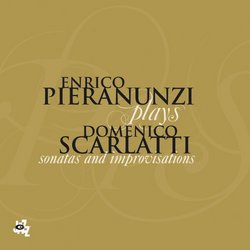 | Enrico Pieranunzi Enrico Pieranunzi Plays Domenico Scarlatti Genres: Jazz, Pop, Classical
|
Larger Image |
CD DetailsSimilar CDs
|
CD ReviewsScarlatti + contemporary impro: Scarlatti wins by a wide mar Discophage | France | 08/20/2010 (4 out of 5 stars) "This disc is not exactly what I expected, based upon an article which I had read, obviously too cursorily.
Enrico Pieranunzi, born in 1949, is an Italian Jazz pianist, and I thought his Scarlatti traversal was something similar to John Lewis' Bach: the leader of the Modern Jazz Quartet made highly entertaining recordings of Bach's Goldberg Variations and Well-Tempered Clavier, with Jazz improvisations after Bach's compositions (The Chess Game Part 1, Chess Game Vol 2, John Lewis, Volume 2: Bach: Preludes and Fugues from the Well-Tempered Clavier Book 1, Prelude & Fugue 3, I found no listing on this website for volume 1). But not here. In the interview contained in the disc's booklet, Pieranunzi insists that he has not "jazzified" Scarlatti, and "that all attempts at what they call "jazzification" have been failures both in terms of jazz as well as the classical material they appropriate" - a statement with which, in the case of John Lewis' Bach, I obviously don't agree. Anyway, what you get is Scarlatti's Sonatas played straight (and more than competently - Pieranunzi has a classical training), followed, preceded by or mixed with impros based on their respective sonata's thematic, rhythmic and/or harmonic material. These impros are conspicuously NOT jazzy, even if some very fleeting Jazz references and strains can be heard; they are written in a contemporary-classical language. So amateurs of Jazz might be disappointed here. Three Sonatas are even played without impros - K18, 51 and 260, because Pieranunzi felt that they were "musical pieces of such intensity and structural solidity that [he] didn't fell there was anything to add". Well - wouldn't that be the case also with the others? Obviously the main attraction of this disc won't be Scarlatti - here Pieranunzi would be no more than one among a zillion of pianists who have recorded them, and without the aura of fame that surrounds Keith Jarrett when he tackles Bach, Haendel or Shostakovich - but Pieranunzi's impros. That said, I am also slightly disappointed with these, because the contemporary language in which the impros are expressed, while enjoyable, is not particularly illuminating or revelatory, I find. It is competent, sometimes even brilliant, but also anchored in everybody's contemporary language from the second half of the 20th Century, nowhere avant-garde (which might be an incentive for many), and never extending the resources of the instrument in a way comparable to what Scarlatti achieved in the 18th Century. Some fleeting moments reminded me of the music for player piano of Conlon Nancarrow (without, evidently, nearing the inhuman contrapuntal and digital complexity of the player piano, although some of Pieranunzi's digital virtuosity is indeed impressive), and Nancarrow is an appropriate reference here: now HE is a true heir of Scarlatti, even if he never made any direct reference to the Napolitean composer, but rather to Jazz. About Pieranunzi, it may sound very scathing to say so (although it is not my intention), but each time Scarlatti returns, it feels like opening your blinds and letting the sun pour in. I am not convinced that Pieranunzi's compositions, left to themselves, would deserve much attention. I would call the project, its intents and results, interesting more than convincing. Three stars for Pieranunzi, the 4th one is for Scarlatti." |

 Track Listings (14) - Disc #1
Track Listings (14) - Disc #1